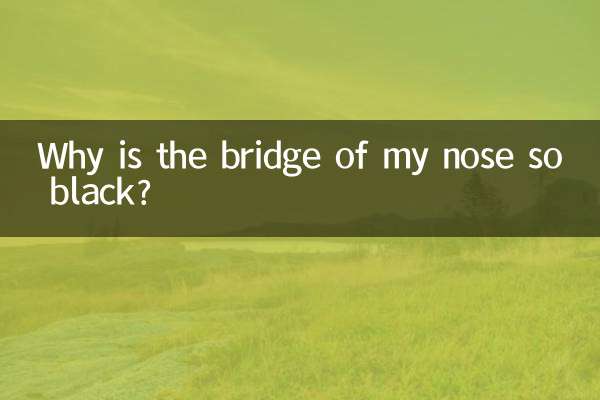What to do if you are bitten
In daily life, it is not uncommon to be bitten by animals or insects. Whether it's a pet, wild animal, or mosquito bite, it can cause varying degrees of injury or infection. Faced with this situation, timely and correct handling is crucial. The following is structured data and suggestions on "What to do if bitten" that have been hot topics on the Internet in the past 10 days, to help you quickly respond to emergencies.
1. Common bite types and treatments

| Bite type | common sources | emergency measures | Medical advice |
|---|---|---|---|
| pet bites | Cats, dogs, hamsters, etc. | 1. Wash the wound with soap and water 2. Compression to stop bleeding 3. Iodophor disinfection | If the wound is deep or the pet is not vaccinated, seek medical attention |
| insect bites | Mosquitoes, bees, ticks, etc. | 1. Remove stingers or ticks 2. Apply ice to reduce swelling 3. Apply anti-allergy ointment | Seek medical attention immediately if you have difficulty breathing or systemic allergies |
| snake bite | Venomous snakes, non-venomous snakes | 1. Stay calm and immobilize the injured limb 2. Avoid running or strenuous exercise 3. Do not take drugs by mouth | All snake bites require urgent medical attention |
2. Key precautions after a bite
1.Determine the source of the bite:Knowing what kind of animal or insect bitten you is helpful for targeted treatment. For example, a bite from a venomous snake is treated very differently than a regular mosquito bite.
2.Clean the wound:Wash the wound thoroughly with running water and soap for at least 5 minutes to reduce the risk of bacterial infection. If the wound is deep, you can use saline to rinse it.
3.Hemostasis and bandaging:For wounds that bleed heavily, use clean gauze or towels to apply pressure to stop the bleeding, and then cover with a sterile dressing. Avoid using materials that stick easily, such as cotton.
4.Watch for symptoms:Record physical reactions after the bite, such as redness, swelling, pain, fever, dizziness, etc. If symptoms continue to worsen or systemic reactions occur (such as rash, difficulty breathing), seek medical attention immediately.
3. Hot bite-related topics on the Internet in the past 10 days
| Topic keywords | Discussion popularity | Main content |
|---|---|---|
| tick bite | high | Ticks are active in summer, bite cases are reported in many places, and correct removal methods are emphasized |
| Rabies prevention | Middle to high | Hot debate arises over whether vaccinations are needed after pet bites |
| First aid for venomous snake bites | high | Outdoor enthusiasts pay attention to self-rescue tips for snake bites |
| Mosquito bite allergy | in | Cases of severe allergies in children after mosquito bites raise alarm |
4. Tips to prevent bites
1.Stay away from wild animals:Avoid contact with or provocation of wild animals, especially stray cats and dogs or areas infested with venomous snakes.
2.Take precautions:Wear long-sleeved clothing when outdoors, use insect repellent spray, and avoid staying in grass for long periods of time.
3.Pet management:Vaccinate your pets regularly and avoid contact with unfamiliar animals.
4.First aid kit preparation:Keep basic first aid supplies such as disinfectant, bandages, and anti-allergy medicines at home or when traveling.
5. Summary
Proper treatment after a bite can effectively reduce the risk of infection and complications. Minor bites can be treated by yourself, but if the injury is serious or the source is unknown (such as venomous snakes, mad dogs), you must seek medical help as soon as possible. Recently, topics such as ticks and snake bites have become very popular. The public is reminded to increase their awareness of prevention and master first aid knowledge.

check the details

check the details